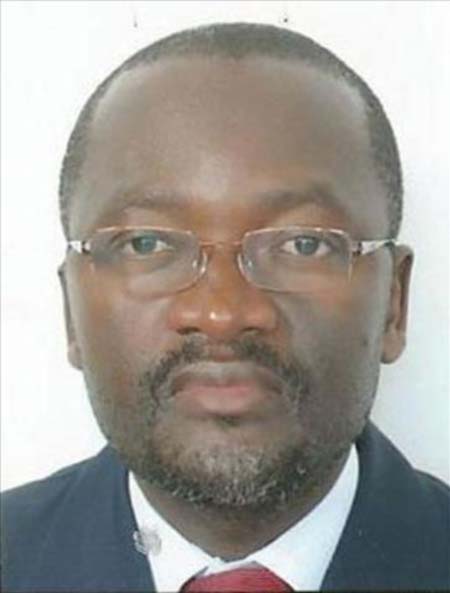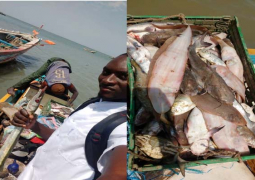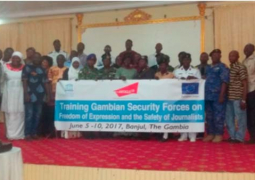
Under cross-examination, Ousman Badjie told the court that he had been in Paris as ambassador for two years.
He said Faisal Bojang, the financial attaché at the embassy, had also been there for only four months, while the deputy head of mission/head of chancery, Adele Sock, had been there for two years.
He added that at the time of his arrival in Paris as ambassador, there was only one person in charge of the embassy, one Mr Jaiteh, then the financial attaché.
Badjie said during that period Mr Jaiteh was the only signatory to the account.
“I queried that by informing the headquarters in Banjul that the situation I found at the embassy was not normal, and that we needed the presence of deputy head of mission, and then Mrs Sock was sent.”
He said as soon as Mrs Sock arrived in Paris, she assumed her duty as the deputy head of mission, head of chancery, as well as the second signatory to the account.
He said for any diplomat who arrives in newly, they would have to inform the Ministry of Foreign Affairs for the host country through a note verbal, and also in her (Mrs Sock) capacity as the head of chancery, they sent a note verbal to the bank informing it that there is a new head of chancery.
“The only time I became signatory to the embassy’s account was when Faisal Bojang committed the crime,” he said, adding that during his tenure as ambassador the home-based staff were the deputy head of mission/chancery, financial attaché, and counsellor in charge of UNESCO matters.
Badjie further stated that the protocol welfare officer was appointed by his predecessors and was a local staff, adding that the local staff in any embassy are appointed by head of chancery.
He said the ambassador with advice from the head of chancery could decide to terminate the contract of any local staff.
He said the ambassador per se would always consult the head of chancery to determine the scope of duty of the protocol welfare officer.
According to Badjie, the Foreign Service Rules are very clear about the duties and responsibilities of the head of chancery and head of mission, saying their responsibilities are not the same.
He said that in his absence outside the mission area, the deputy head of mission would step in as Charge d’Affaire and it is well defined in the Foreign Service Rules.
The state counsel A.M Yusuf showed him a document and Badjie said that was not the valid Foreign Service Rules.
He also said the rules in use now were dated 2012, and the one shown to him is dated 2009.
Asked about the one dated 2012, he said it was with his counsel.
Asked by the trial judge whether he had the document, counsel L.S. Camara said this was the very document that the state counsel objected to when he wanted to tender it in court.
At that juncture, the trial judge asked for a stand down to enable counsel Camara to look for the document.
The state prosecutor was given the document, and the accused confirmed it to be the valid rules.
The state prosecutor then applied to tender it in court, and it was tendered and marked in evidence as an exhibit without any objection from the defence.
Badjie adduced that by the Foreign Service Rules 2012, the ambassador as head of mission had the overall responsibility for the mission, which is not the same as chancery, and that he remembered telling the court that, apart from Paris, he was also responsible for four other missions: Russia Federation, Swiss Confederation, Romania, UNESCO in Paris and the UN in Geneva.
The case continues today.



